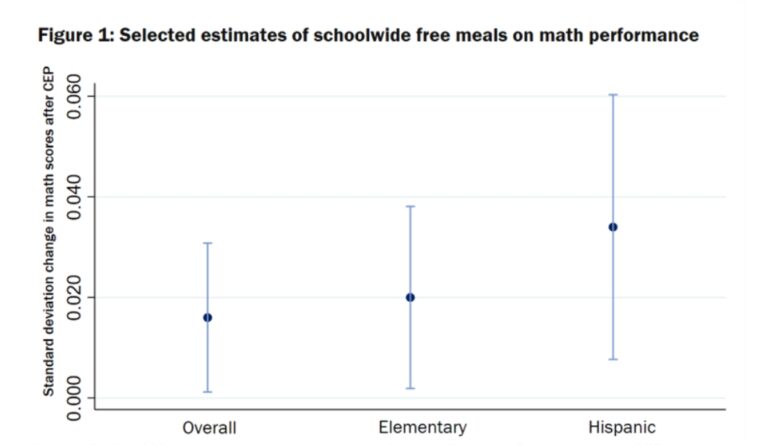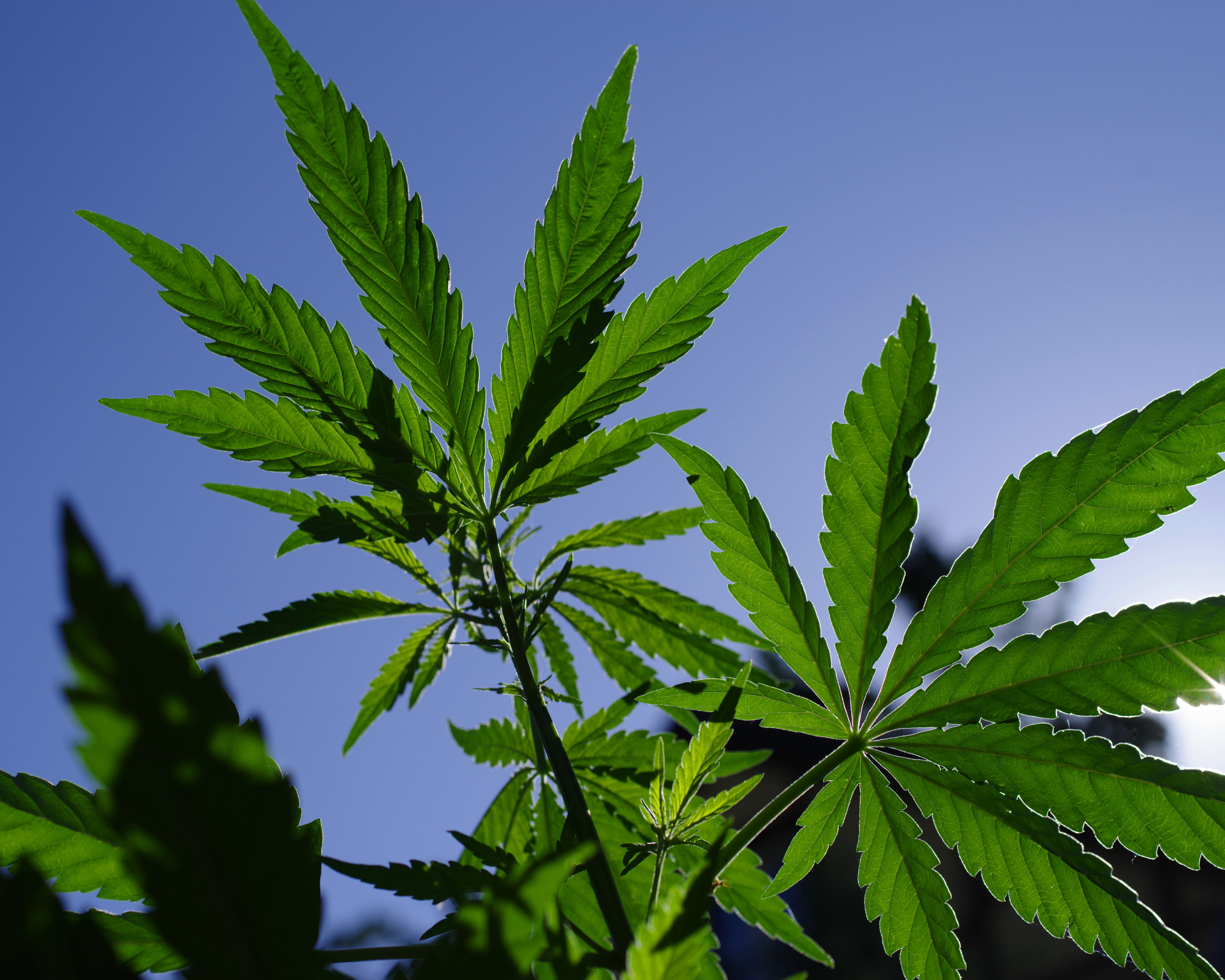Free Lunch: Boosting Nutrition and Math Scores
Free meals in schools have resulted in more students eating both breakfast and lunch, and have led to improved performance in the classroom.

Read Time: 2 minutes
Published:
During the COVID-19 pandemic, free school meals were available to all students. But this benefit expired in June 2022, and inflated food prices add weight to the food burden on family budgets.
School-wide, free meal programs feed all students, regardless of income. And the meals don’t just provide necessary nutrition for students who would otherwise go without. They also provide a healthier alternative to packed lunches, and may even boost academic performance. New findings from Krista Ruffini at Georgetown University provide evidence that free school meal policies benefit students in the classroom, as well as the cafeteria.
In 2010, the federal government’s Community Eligibility Provision (CEP) allowed high-poverty schools to serve free meals to all students and get reimbursed by the government without having to collect information from individual students seeking to qualify. Since schools and districts adopted the expansion of CEP at different times, Ruffini compared changes in outcomes within a district or school before and after CEP adoption.
When school meals were free for all students, 38% more students ate breakfast at school and 12% more students ate school lunch. The graph above shows that in schools where a high proportion of students gained access to free meals under the universal program, math performance improved, especially among elementary and Hispanic students.
COVID-19 policies expanded the CEP concept further: all school meals were free in all schools. Now, with math scores in unprecedented decline from COVID-19 interruptions, states may be tempted to redirect school funding from the cafeteria to the classroom. But these findings suggest scores would have dipped even more without the free meal program in place. Some states have temporarily extended the COVID-19 era universal free meal programs. As free meal programs expire, students could have more to lose than lunch money.
Databyte via Krista Ruffini. Universal Access to Free School Meals and Student Achievement Evidence from the Community Eligibility Provision. Journal of Human Resources, 2022.



